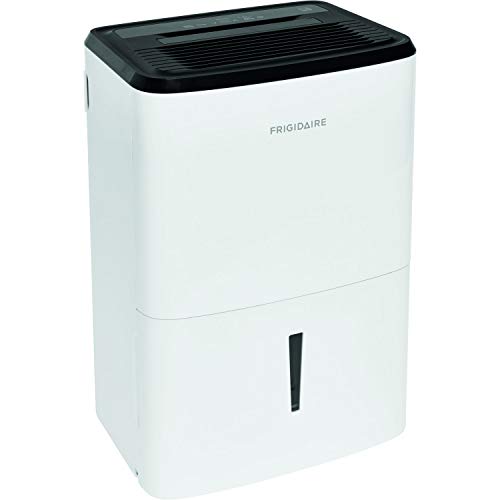Is the humidity in your room still going up even if your air conditioner is running? You don't have to worry anymore! We gathered helpful information on what you must do when this happens, and here is what we got.
Before calling for professional help, you can do these simple tasks to fix this issue:
- Check and activate the fan setting of your thermostat.
- Clean the evaporator coils.
- Install an additional dehumidifier.
If the above-mentioned remedies don't work, then it's time to call for your HVAC professional to further assess the situation.
Read on as we elaborate on how these remedies help in decreasing the humidity of your room. We'll also discuss what humidity level should you maintain and what are the effects of having too high or too low humidity levels. And if you don't know how to fully utilize the dehumidifying features of your air conditioner, we'll help you with that. So keep reading!
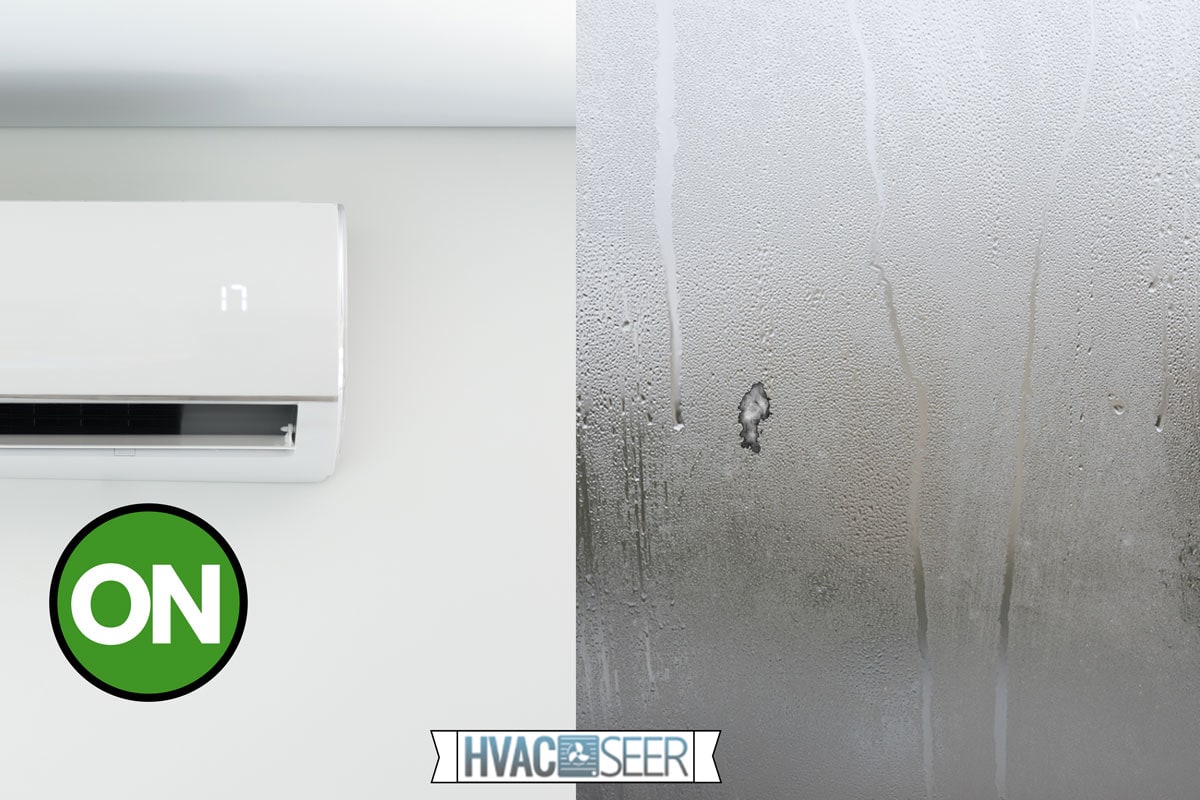
How Does Your Thermostat Setting Affect The Humidity Of Your Room?
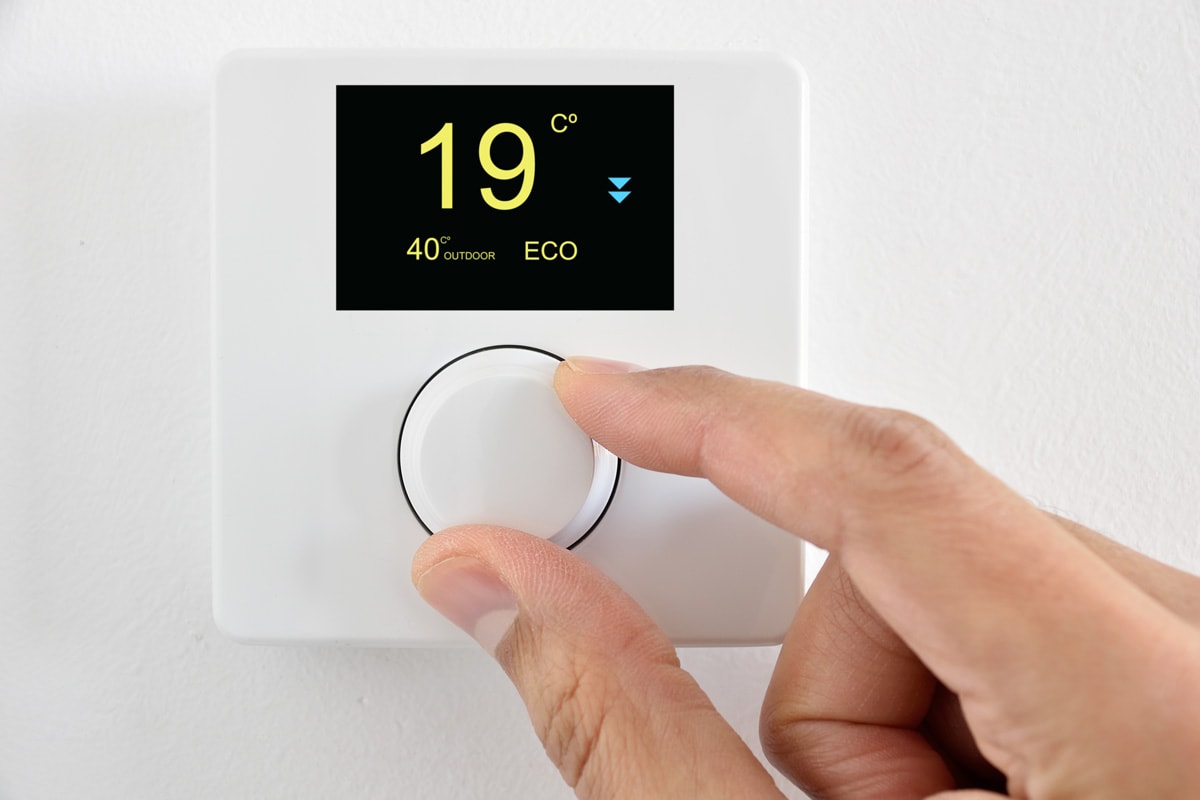
Your HVAC system and thermostat settings have an impact on the relative humidity in your home. Too little humidity results in dry air, which can be unhealthy, uncomfortable, and warp wood furniture and flooring as well as build up static electricity.
High humidity levels can encourage the growth of mold and bacteria, which not only harms your HVAC system but also puts everyone within in danger of serious health problems.
What Humidity Levels Should You Maintain?
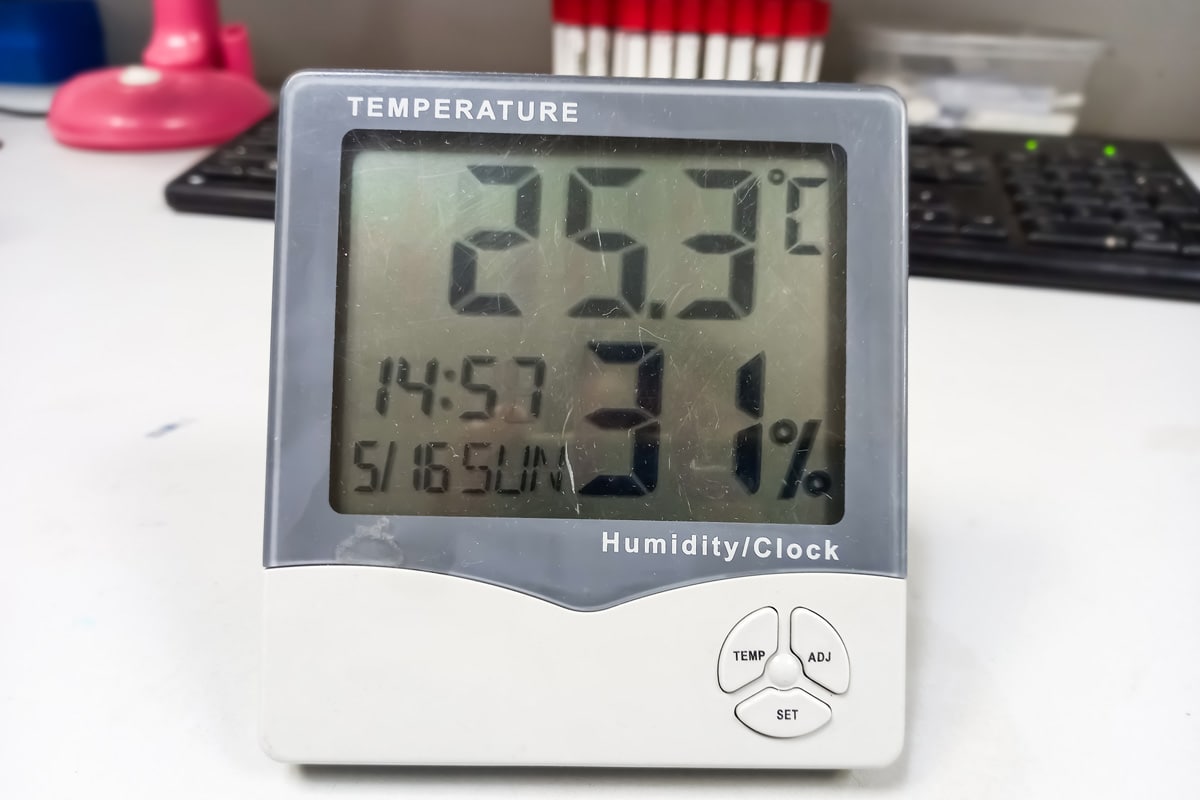
Ideally, every residence should have a humidity level of between 31 and 45 percent. The air is too dry when the percentage falls below 30%, and the humidity is too high when it exceeds 50%.
Health concerns arise from excessive and ineffective moisture levels. It is best to keep an eye on and maintain an appropriate level of humidity inside your home.
So what happens when you have too low or too high humidity?
Dry skin, itchy eyes, and throat irritation are among the side effects of low humidity.
Condensation on floors, walls, and other surfaces can result from high humidity levels, which can also give your house a stuffy vibe. Dangerous bacteria and molds can form as a result of condensation. These allergens can aggravate allergies and asthma attacks while also causing respiratory issues.
How To Clean AC Evaporator Coils?
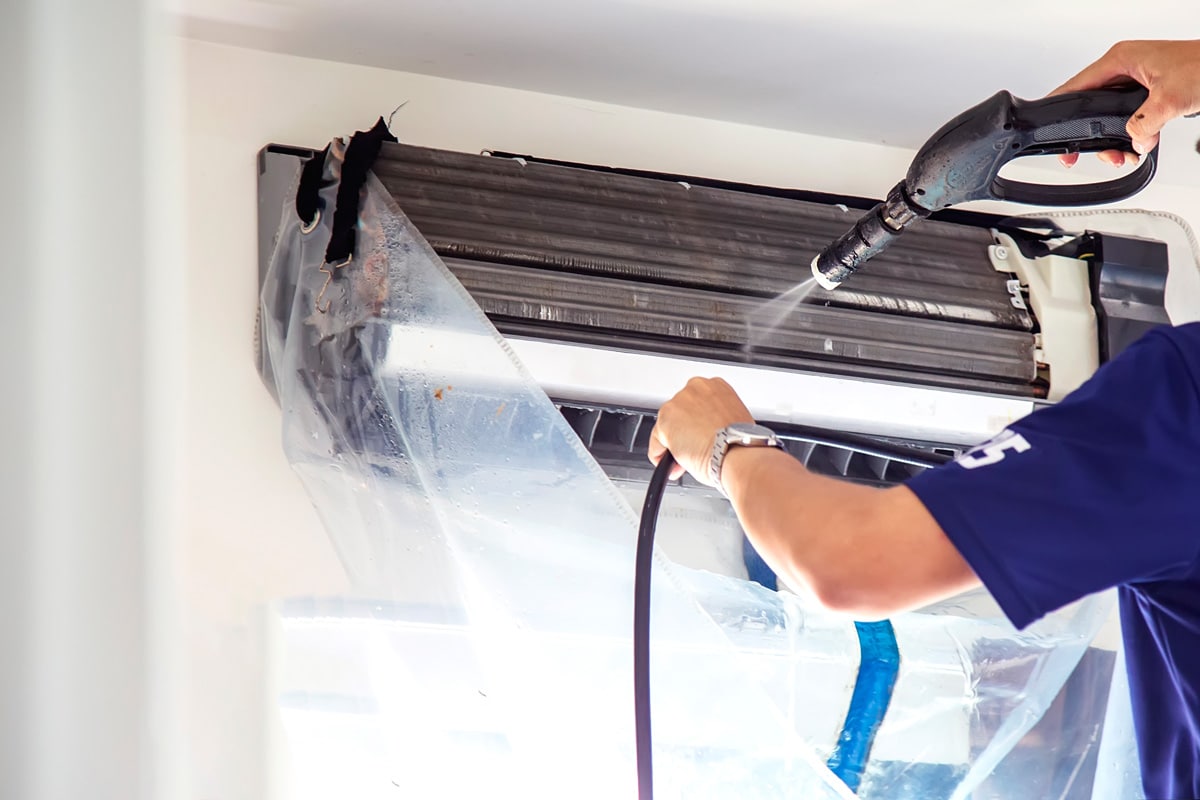
One of the most crucial components of an air conditioner is its evaporator coils. Not only does it provide the cooling you need but it also aids in removing humidity in your room. Therefore, it is essential to look after them.
You can follow these simple steps in cleaning your evaporator coils:
- At the thermostat, shut off the air conditioning system.
- To prevent any electrical accidents, turn off the circuit breaker.
- Locate the air handler coils by gaining access to the air conditioner.
- By removing each screw, you may loosen the panel. Put them in a location where they won't get lost to keep them safe.
- Finally, give them a thorough cleaning using your preferred cleaning agent.
You can read more about evaporator cleaning in this article on this page: How To Clean Air Handler Coils
What Is The Effect Of Having A Too Big HVAC System In Your Home?
When it comes to air conditioners, there is such a thing as too large. The general belief is that larger systems operate more efficiently. In the context of air conditioner units, bigger explicitly refers to more cooling power.
This is not always the case because a larger system is designed to cool a larger space. A larger system has to work more to assess whether it has completed its task.
The signs of an oversized AC unit causing short cycling and AC cooling but not humidity removal include:
Having Too Cold And Humid Rooms
In the case of mini-splits, this is typically the space that houses the internal air handler as well as any portable or window air conditioners. The humidity cannot be reduced by air conditioning, only the temperature.
Having Too Hot And Humid Rooms
When an air conditioner is too huge, its excessive cooling output may allow one room to reach the desired temperature while overheating other spaces. The lack of cooling and dehumidifying is the outcome.
AC Turns On And Off Very Often
This is a classic symptom of a too-large AC unit short cycling.
Why The Need To Add A Dehumidifier?
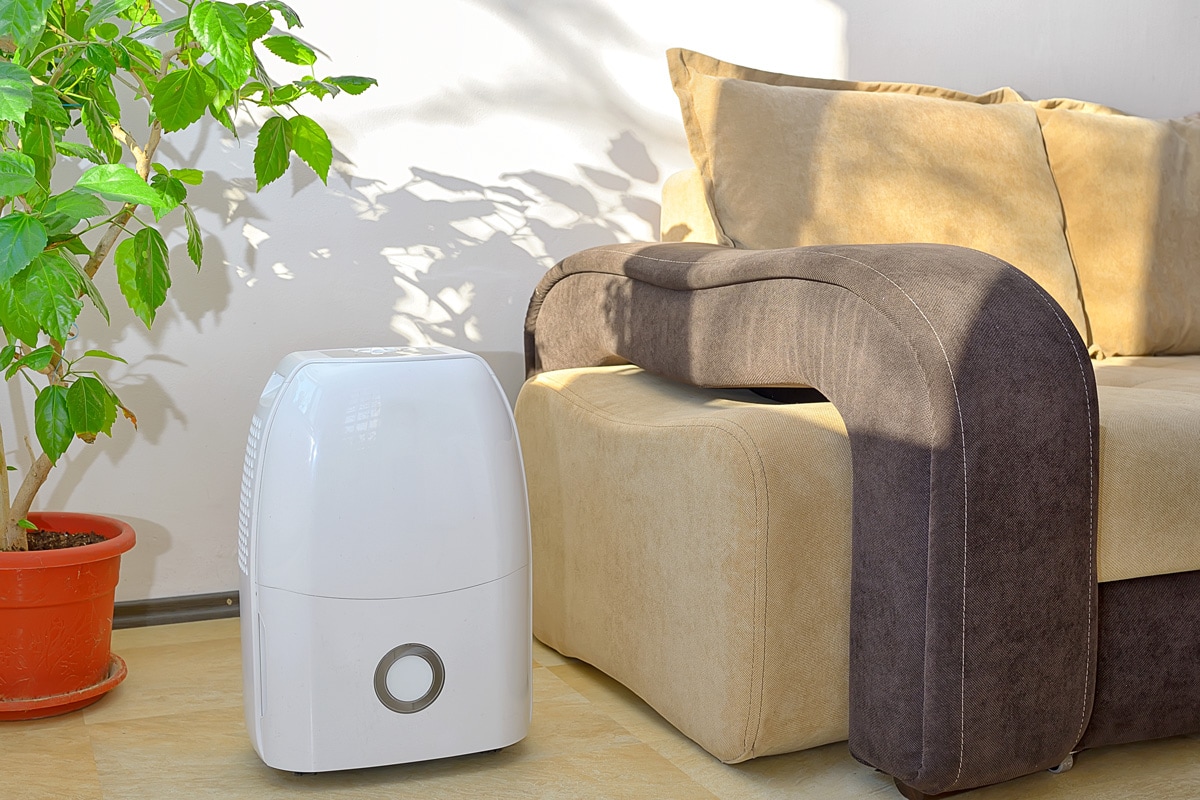
You and your system can benefit from having a dehumidifier installed in the house. These devices are made precisely to remove the water from the air, like what the evaporator coil does.
If your air conditioner simply isn't cutting it or you have a larger system that cools but doesn't manage to remove all the humidity, this solution might be the best option.
This may be the greatest option if your system functions perfectly but the humidity level is a problem.
You might be able to get away with a portable dehumidifier if your house is smaller or if there is only one room that seems to be more humid.
What Are The Best Dehumidifiers To Use?
Is your air conditioner not doing its job in removing humidity in your room and you're looking for dehumidifiers to use? Here are 4 of the best humidifiers available you can choose from:
1. GE APER50LZ
Click here for this product on Amazon
This type is suited for moist room situations. Designed to treat any space, the clean design of the GE Appliances Dehumidifier gives you a simple solution to make the atmosphere more appealing in your house.
2. Midea 20 pint cube dehumidifier
Click here for this product on Amazon
This dehumidifier has an innovative lift-and-twist design that provides unmatched flexibility and capacity:
- when in extended form, it has up to three times more water tank capacity than conventional dehumidifiers and can work for longer without the trouble of frequently flushing the tank
- when in nested or drain form, the device is half the size, allowing compact storage or flexible draining.
It maintains the proper humidity level in your house and may fit into most spaces.
3. Frigidaire FFAD2233W1
Click here for this product on Amazon
For laundry rooms, apartments, and other tiny places, the 22-pint Frigidaire FFAD2233W1 is a fantastic option. It is portable, and if necessary, its four wheels make it simple to move from room to room.
4. Honeywell TP50AWKN
Click here for this product on Amazon
This smart dehumidifier is the dependable option for a durable, long-lasting dehumidifier for your home and is backed by our exceptional guarantee. The TP50AWKN eliminates moisture with less energy than traditional dehumidifiers, saving you money on energy.
In medium-to-large spaces, such as basements, dens, and storage rooms, this device can remove up to 30 pints of moisture every day.
You are protected by Honeywell's five-year warranty if something does go wrong with the unit. Because most dehumidifiers only have one or two-year warranties, this extended warranty protects your investment.
How To Maximize The Humidity-Removal Function Of Your Air Conditioner?
If you want to remove more humidity using your air conditioner, here are some things you can do:
- Regularly Cleaning The Coils
- Adjust Fan Speed
- Place A Thermal Expansion Valve (TXV)
- Monitor Your Refrigerant Charge
Regularly Cleaning The Coils
Your indoor evaporator coil won't be able to remove all of the heat and humidity that it is intended to when it is covered in dust and filth. The coil might not be filthy enough to stop the AC from chilling your house, but it might still be filthy enough to hinder moisture removal.
Adjust Fan Speed
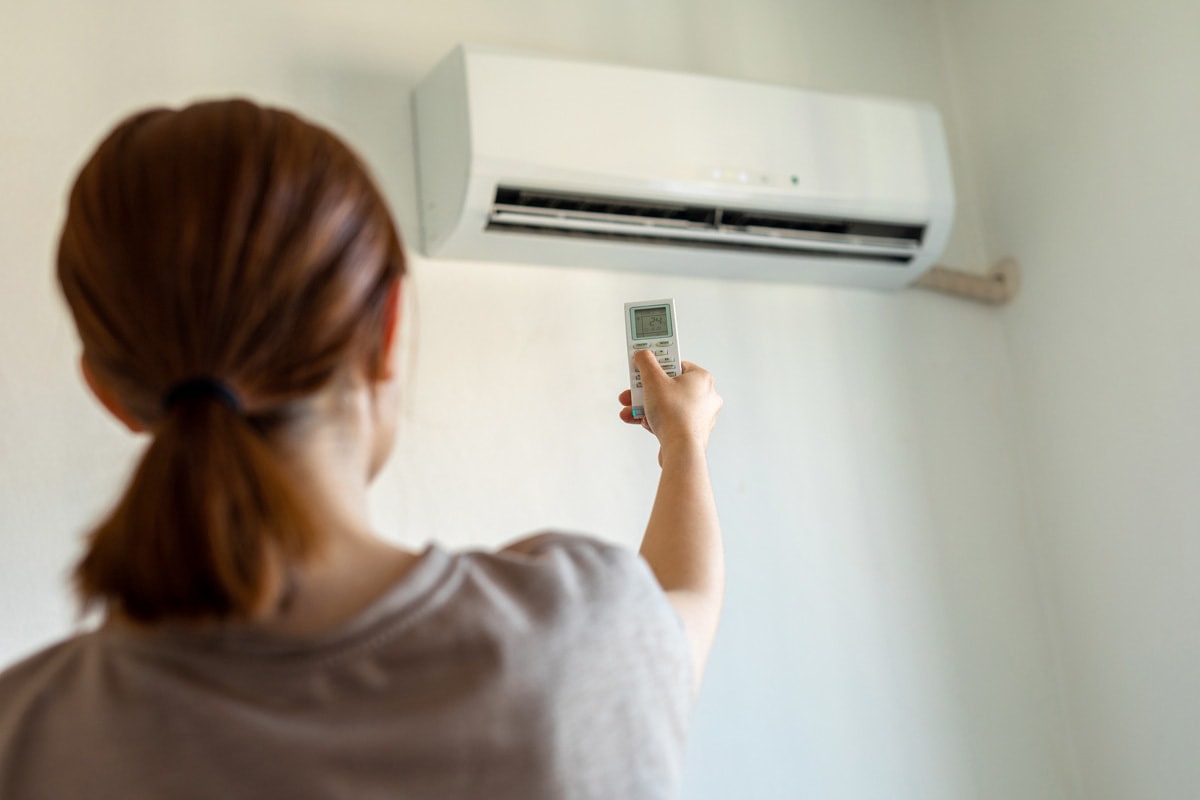
You need your air conditioner to circulate air at a rate of 350 CFM per ton or less in hot, humid conditions. There are numerous devices designed to move air more quickly than that. A faster rate is not suitable for removing humidity.
An air conditioner moves cooler air into your home rather quickly if the fan speed is set to more than 350 CFM per ton.
The decreased airflow allows the indoor coil to cool down by being configured to move air at a rate of 350 CFM per ton. When it's cooler, it can remove more moisture while still maintaining the temperature you set on your thermostat.
Place A Thermal Expansion Valve (TXV)
You are essentially connecting a bulb to your evaporator line when you install a TXV. Depending on how much refrigerant is required to optimize the amount of the indoor coil that may be used at any given temperature, the bulb opens and shuts.
Simply said, a TXV increases the evaporator coil's ability to remove heat and humidity.
Monitor Your Refrigerant Charge
If the charge is too low, your air conditioner won't be able to effectively reduce the heat or humidity in your house so that you can stay comfortable. This issue can eventually worsen into something worse, such as coil freezing or compressor failure.
These issues are much more significant than simply not feeling at ease. You might need to pay for a costly repair or possibly have your system replaced.
Final Thoughts
Fixing humidity issues sounds quite like a straightforward task. Simply clean your indoor coils, check and adjust your thermostat, or add a supplemental dehumidifier.
So, if your rising humidity problem isn't resolved, it's time to call in the experts.
If you're still debating whether to continue using your AC to remove humidity or just purchase a dehumidifier, you can learn from this article on this page: Mini Split Dry Mode Vs. Dehumidifier: What’s The Difference?

